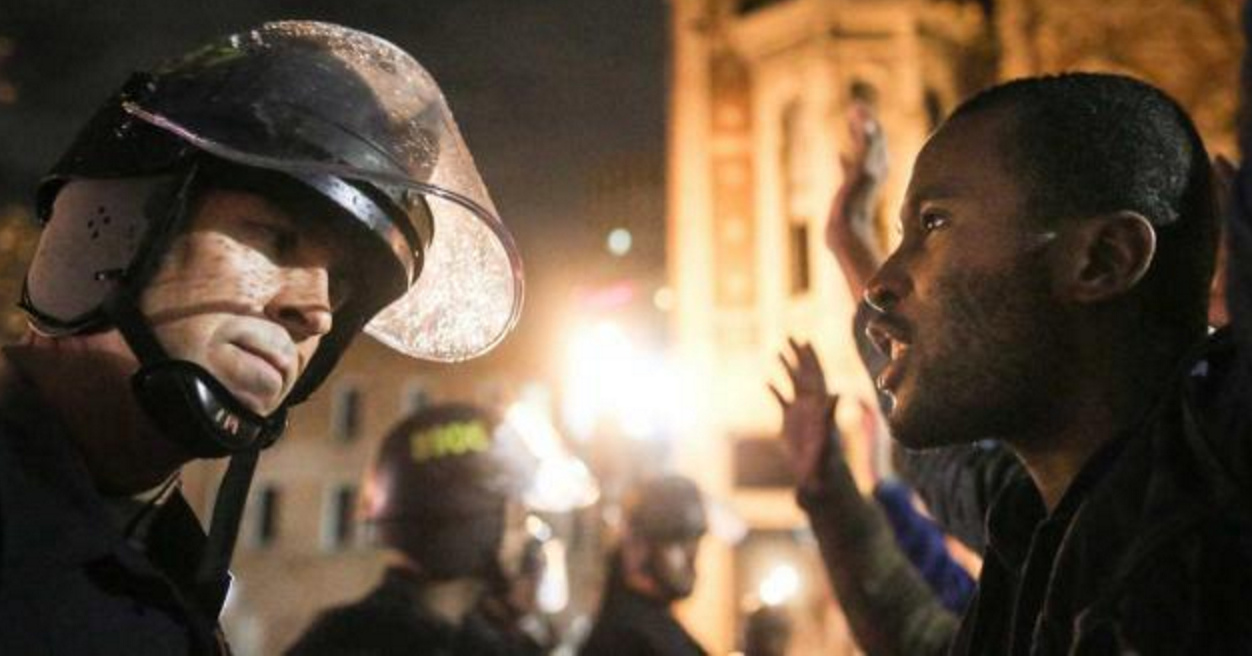Policing Is Racially Biased
Racial tensions are undeniably high in America, and much of the strain comes on the heels of the 2014 shooting of Michael Brown in Ferguson, Missouri, by a white police officer and the wave of additional and controversial deaths that followed. Given the widespread and rapid sharing of information that now takes place via social media and related channels, many Americans have viewed these encounters for themselves and had an opportunity to form their own opinions about them.
Looking beyond the obvious emotional responses to these videos and recordings, how can the nation get a clear and accurate picture of just how prevalent acts of racial bias by law enforcement truly are? Do the widely shared videos only exacerbate existing tensions by making such instances seem more prevalent than they truly are, or do they call critical attention to the issue of racial profiling among law enforcement officials across the nation?
Yes, policing is racially biased.
Arguing in favor of the motion that policing is racially biased are Gloria Browne-Marshall, an associate professor of Constitutional Law at John Jay College of Criminal Justice and a former civil rights attorney, and Marq Claxton, a member of the Black Law Enforcement Alliance and a retired NYPD detective.
Arguments Made in Favor of the Motion
Proponents for the motion that American policing is, in fact, racially biased, cited studies and statistics in arguing their angle. They noted that social researchers have found evidence that suggests that police interactions are influenced by implicit bias, or associating black men and criminal behavior, and they also referenced U.S. Department of Justice reports and separate research studies that indicated racial bias plays a role in a number of policing behaviors, from the use of force to general traffic stops.
Proponents also referenced specific crime-fighting procedures in use in America, such as stop-and-frisk efforts, that unduly target African-American communities in arguing their case.
No, policing is not racially biased.
Arguing against the motion that policing is racially biased are Heather Mac Donald, a Thomas W. Smith Fellow at the Manhattan Institute and the author of “The War on Cops,” and Harry Stern, an attorney with Rains Lucia Stern.
Arguments Made Against the Motion
Opponents to the motion that American policing is racially biased argued that the number of incidents involving racial bias against minorities is overblown, referencing studies that indicate that African-Americans are no more likely, and possibly even less likely, to be shot by law enforcement officials than Caucasians. They also argued that the considerable amount of media attention being devoted to the incidents of racial bias that do occur are slanting the nation’s perspective and making it seem as if such acts are rampant, when in reality, they are few and far between.
Opponents also noted that African-Americans are statistically more likely to commit violent crimes, and that police have to go where crimes are being committed in order to prevent them. Therefore, it is the higher number of blacks committing serious crimes, and not racially biased policing, that is ultimately responsible for the larger number of African-Americans dying at the hands of authorities.
Pre-Debate Poll Results
Prior to the debate, 57 percent of audience members were in favor of the motion that policing is racially biased, while 16 percent were against it and 27 percent were undecided.
Post-Debate Poll Results
After the debate, 60 percent of audience members were in favor of the motion that policing is racially biased, while 28 percent were against it and 12 percent were undecided.




